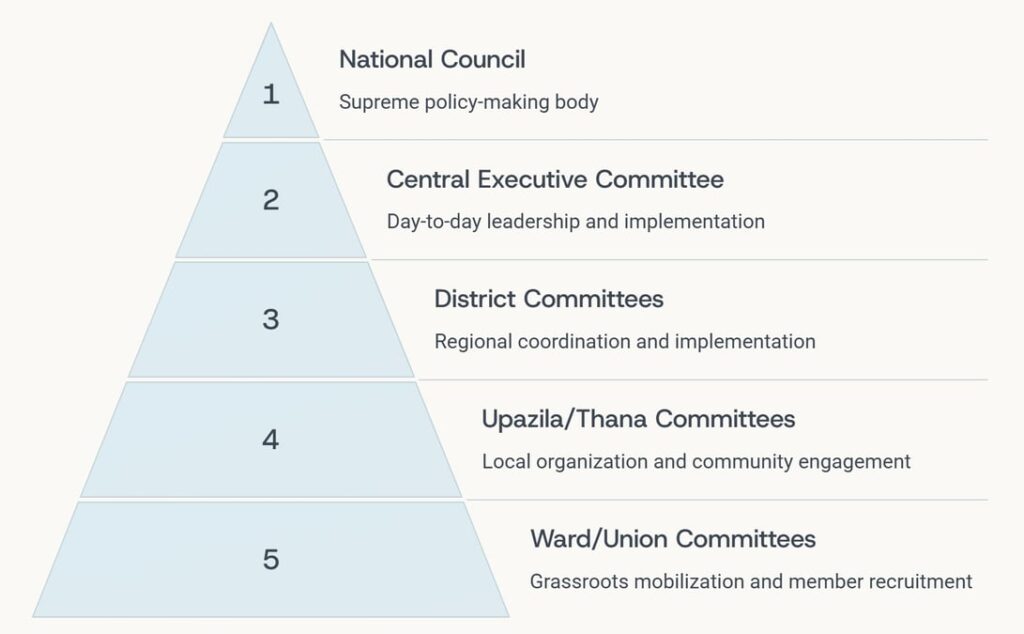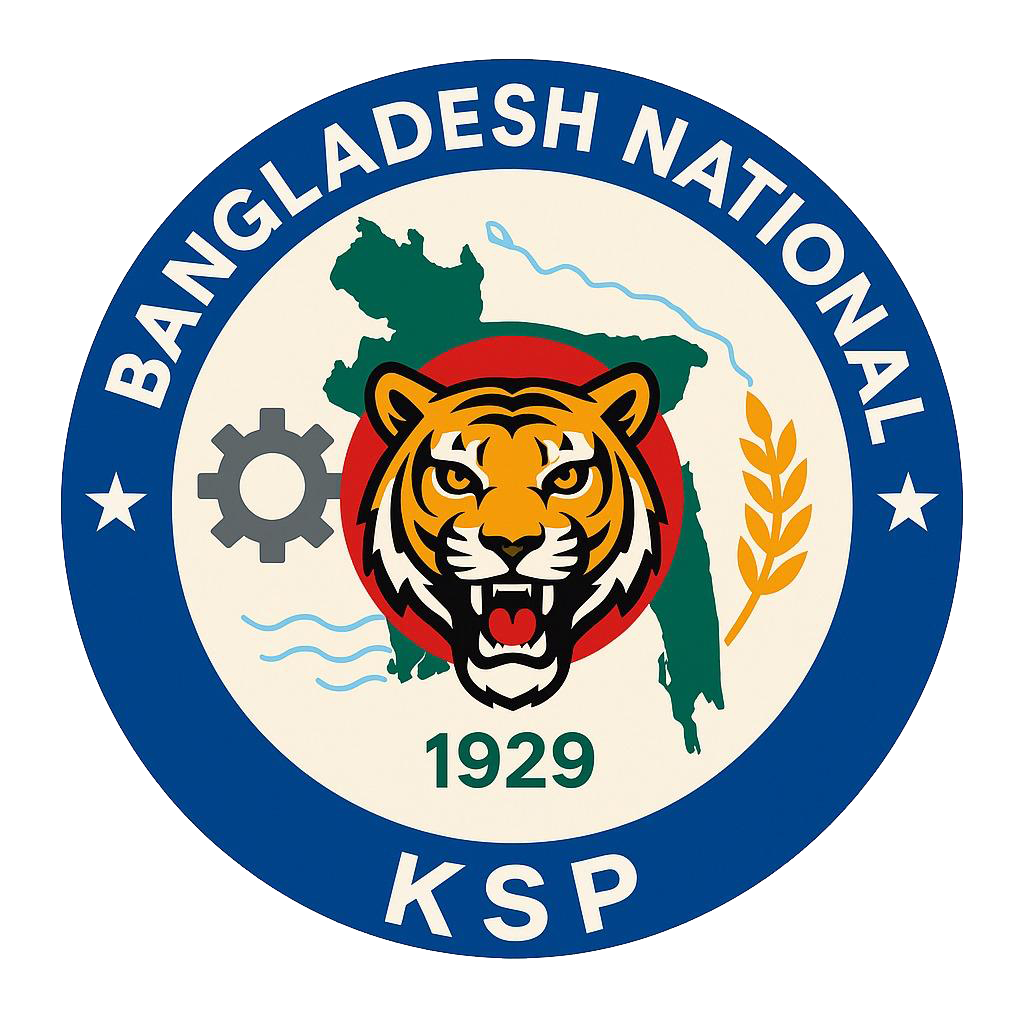
This organizational structure is complemented by specialized wings and committees that focus on specific areas of party work:
Specialized Wings
- Youth Wing (Krishak Sramik Youth Forum)
- Women’s Wing (KSP Women’s Committee)
- Student Wing (Krishak Sramik Student Federation)
- Cultural Wing
- Research and Policy Development Cell
- Functional Committees
- Disciplinary Committee
- Election Commission
- Finance Committee
- Media and Communications Committee
- Membership Committee
Each level of the organization operates according to the party constitution, with defined roles, responsibilities, and decision-making procedures. Regular elections ensure leadership renewal, while established communication channels facilitate the flow of information between different organizational levels. This structure enables BNKSP to function as a cohesive political entity while maintaining democratic practices within its own operations.
The National Council: Supreme Policy-Making Body
The National Council serves as the supreme policy-making body of the Bangladesh National Krishak Sramik Party. Composed of elected representatives from across the country, the Council embodies the party’s commitment to internal democracy and collective decision-making. It meets triennially in regular sessions, with provision for emergency meetings when necessary.
Composition of the National Council
The National Council includes representatives from various levels of the party organization:
- All members of the Central Executive Committee
- Presidents and General Secretaries of District Committees
- Elected representatives from each district based on membership strength
- Members of Parliament belonging to the party
- Heads of affiliated organizations and specialized wings
The party constitution mandates at least 33% female representation in the National Council, reflecting BNKSP’s commitment to gender inclusivity in its decision-making processes.
“The National Council represents the collective wisdom and democratic will of our party members from across Bangladesh. Through deliberative processes and inclusive representation, it ensures that our policies truly reflect the needs and aspirations of farmers and workers.”
Constitutional Authority
The Council has the authority to amend the party constitution, requiring a two-thirds majority of present and voting members. Any constitutional changes must be communicated to the Election Commission within 15 days.
Leadership Election
The National Council elects the Central Executive Committee through secret ballot voting, ensuring a transparent and democratic leadership selection process. This includes the election of key positions such as President, Executive President, Vice Presidents, General Secretary, and other office bearers.
Policy Approval
All major policy decisions, electoral manifestos, and long-term strategic plans require the Council’s approval. This ensures that the party’s direction aligns with the collective vision of its nationwide membership.
Appeal and Oversight
The National Council serves as the final authority for appeals against decisions of the Central Committee, particularly in disciplinary matters. This provides an important check and balance within the party’s governance structure.
The National Council’s triennial meetings are significant events in the party’s calendar, providing opportunities for a comprehensive review of the party’s performance, strategic planning for the future, and renewal of leadership. Emergency sessions can be convened either at the President’s discretion or upon written request from one-fifth of Council members, ensuring responsiveness to urgent situations.
